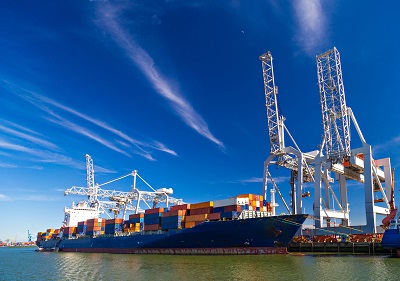 More legal certainty for chain transactions
More legal certainty for chain transactions
With the law of December 12, 2019, the Bundestag passed some changes regarding the value added tax. Many of the regulations already came into force on January 1, 2020. One of them is the mandatory implementation of the so-called “Quick Fixes” under Union law. These cover in particular new regulations on chain transactions, consignment stock and intra-Community deliveries. We will explain below what changes will specifically affect transnational traders.
What is a chain transaction?
According to the new legal definition, a chain transaction is assumed if several entrepreneurs conclude delivery transactions for the same good and this good reaches the last buyer during transport or dispatch from the first entrepreneur to the last buyer. There are therefore several sales transactions. For reasons of cost or logistics, however, delivery is made directly to the last buyer in the chain. In practice, the VAT valuation of chain transactions has for some time been a source of uncertainty.
Only moved deliveries are exempt from sales tax
In the case of chain transactions, there may be more than three parties involved. This means that there can be an unlimited number of intermediaries between the supplier and the end customer (intermediaries).
The central problem in chain transactions is the assignment of one actual goods movement. Vendors must clarify which of the many supply relationships in the chain this actual movement of goods can be assigned to.
This allocation is crucial because only one of the deliveries – as a moved delivery – represents the goods movement and only this delivery can be exempt from VAT in cross-border goods traffic as an intra-Community delivery or export delivery. All other deliveries in the chain take place without a goods movement and are generally taxable as dormant/non-moving deliveries.
The allocation of the moved delivery in the chain transaction has now been newly regulated by law in § 3 paragraph 6a of the Value Added Tax Law. According to this, the allocation decision of the moved delivery depends on the reason for the transport. In this respect, a distinction must be made as to whether the delivery is transported or dispatched by the first business owner, the last recipient, or an intermediary participant.
Tax exemption only for “recapitulative statement”
In addition, the recognition of intra-Community supplies and their exemption from tax are also tightened up. In the future, the customer is to use a valid VAT ID number issued by another member state to the supplier. Moreover, the tax exemption will not apply if the entrepreneur has not properly fulfilled his obligation to submit the “recapitulative statement” (zusammenfassende Meldung, ZM). In general, the entrepreneur must declare the delivery and the customer in a full and correct manner.
Buyers can make up for mandatory declarations
If purchasers do not succeed in proving the conditions for exemption in time, a taxable (intra-Community) supply will take place. However, a breach of these obligations is curable as long as the breach is not intentional and the purchaser subsequently fulfils his obligations to the satisfaction of the competent authorities.
Abolition of the registration obligation for consignment stores
The Quick Fixes receive a further new regulation for the transport of goods to a consignment warehouse. This regulation has now been implemented in § 6b of the Value Added Tax Law. A consignment warehouse is a supplier’s warehouse that is located close to the customer – usually in another member state. According to the law in force until December 31, 2019, the transfer of goods by the entrepreneur to his consignment warehouse was to be classified as intra-Community transfer. The place of delivery was where the consignment warehouse was located. The transfer was generally tax-free. In the Member State of destination, the entrepreneur had to pay tax on an intra-Community acquisition and the subsequent supply of the goods to another entrepreneur (customer) resulted in a domestic supply in that Member State.
Under the new rules, the supply to the purchaser is a tax-free intra-Community supply in the Member State of departure (Section 6a of the VAT Act) and at the same time an intra-Community acquisition in the Member State of destination (Section 1a(1) of the VAT Act). In the case of supplies that fall under the consignment stock regulation, the following therefore do not apply:
- the declaration of an intra-Community transfer,
- the registration of the supplier in the country of destination of the goods, and
- the subsequent taxable domestic supply.
Supplier must record the transport of goods separately
However, the purchaser must use the VAT identification number issued to him by the Member State of destination vis-à-vis the operator until the start of the transport of the goods. In addition, the supplying entrepreneur must keep separate records of the transport of goods to the Member State of destination (§ 22 para. 4f of the Value Added Tax Law).
This regulation can have both positive and negative effects for those concerned. One can decide not to keep a warehouse register and thus remain with the old regulation. In our experience, the obligations now standardized are sometimes difficult to comply with.
WINHELLER advises on Value Added Tax
We would be pleased to assist you in implementing the new regulations and designing suitable documentation channels. Our attorneys for value added tax issues will support you in all chains transactions and the tax issues that arise in the process.
Continue reading:
Refund of the German Value Added Tax
Tax Law for businesses in Germany




